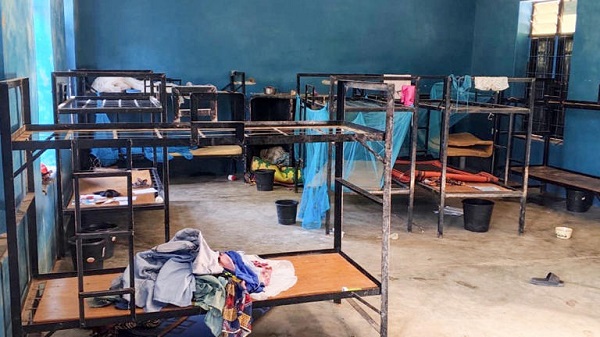Alberta
So Alberta, what’s next?

Albertans, not Ottawa, should shape Alberta’s future. The Alberta Next Panel is hitting the road to engage directly with Albertans and chart a path forward for the province.
Albertans are frustrated after 10 years of punitive policies, enacted by the federal government, attacking Alberta’s economy and targeting its core industries.
Chaired by Premier Danielle Smith, the Alberta Next panel will bring together a broad mix of leaders, experts, and community voices to gather input, discuss solutions, and provide feedback to government on how Alberta can better protect its interests, defend its economy, and assert its place in Confederation.
The panel will consult across the province over the summer and early fall to ensure that those living, working, doing business and raising families are the ones to drive Alberta’s future forward. The work will include identifying solutions advanced by Albertans on how to make Alberta stronger and more sovereign within a united Canada that respects and empowers the province to achieve its full potential. It will also include making recommendations to the government on potential referendum questions for Albertans to vote on in 2026.
It will consider and hear from Albertans on the risks and benefits of ideas like a establishing an Alberta Pension Plan, using an Alberta Provincial Police Service rather than the RCMP for community policing, whether Albertans should consider pursuing constitutional changes, which (if any) changes to federal transfer payments and equalization Albertans should demand of the federal government, potential immigration reform that would give the provincial government more oversight into who comes to the province, and changes to how Alberta collects personal income tax. Albertans will also have the opportunity to put forward their own ideas for discussion.
“This isn’t just about talk. It’s about action. The Alberta Next Panel is giving everyday Albertans a direct say in the direction of our province. It’s time to stand up to Ottawa’s overreach and make sure decisions about Alberta’s future are made here, by the people who live and work here.”
“Right now, there is a need to restore fairness and functionality in the country. Years of problematic policy and decisions from Ottawa have hurt Albertan and Canadian prosperity. I am honoured to be asked by Premier Smith to participate in the Alberta Next Panel. This panel is about listening to Albertans on how we build a stronger Alberta within a united Canada, to which I, and the Business Council of Alberta, are firmly committed.”
Chaired by Premier Danielle Smith, the panel includes 13 additional members, including elected officials, academics, business leaders and community advocates:
- Honourable Rebecca Schulz, Minister of Environment and Protected Areas of Alberta
- Brandon Lunty, MLA for Leduc-Beaumont
- Glenn van Dijken, MLA for Athabasca-Barrhead-Westlock
- Tara Sawyer, MLA-elect for Olds-Didsbury-Three Hills
- Bruce McDonald, former justice, Court of Appeal of Alberta
- Trevor Tombe, director of fiscal and economic policy, the University of Calgary School of Public Policy
- Adam Legge, president, Business Council of Alberta
- Andrew Judson, vice chairman (prairies), Fraser Institute
- Sumita Anand, vice president, Above and Beyond Care Services
- Melody Garner-Skiba, business and agricultural advocate
- Grant Fagerheim, president and CEO, Whitecap Resources Inc.
- Dr. Akin Osakuade, physician and section chief, Didsbury Hospital
- Dr. Benny Xu, community health expert
- Michael Binnion, president, Questerre Energy
Albertans have a choice: let Ottawa continue calling the shots—or come together to chart our own course. What’s next? You decide.
Key facts:
- Town hall dates and sites, along with other opportunities to participate in this engagement, are available online at Alberta.ca/Next. Exact locations will be posted in the weeks ahead of the event, and Albertans will be asked to RSVP online.
- The panel’s recommendations will be submitted to government by Dec. 31, 2025.
- It is anticipated that the panel will add additional members in the coming weeks.
Related information
Related news
 ]
]


Alberta
New pipeline from Alberta would benefit all Canadians—despite claims from B.C. premier

From the Fraser Institute
The pending Memorandum of Understanding between the Carney government and the Alberta governments will reportedly support a new oil pipeline from Alberta’s oilsands to British Columbia’s tidewater. But B.C. Premier David Eby continues his increasingly strident—and factually challenged—opposition to the whole idea.
Eby’s arguments against a new pipeline are simply illogical and technically incorrect.
First, he argues that any pipeline would pose unmitigated risks to B.C.’s coastal environment, but this is wrong for several reasons. The history of oil transport off of Canada’s coasts is one of incredible safety, whether of Canadian or foreign origin, long predating federal Bill C-48’s tanker ban. New pipelines and additional transport of oil from (and along) B.C. coastal waters is likely very low environmental risk. In the meantime, a regular stream of oil tankers and large fuel-capacity ships have been cruising up and down the B.C. coast between Alaska and U.S. west coast ports for decades with great safety records.
Next, Eby argues that B.C.’s First Nations people oppose any such pipeline and will torpedo energy projects in B.C. But in reality, based on the history of the recently completed Trans Mountain Expansion (TMX) pipeline, First Nations opposition is quite contingent. The TMX project had signed 43 mutual benefit/participation agreements with Indigenous groups along its route by 2018, 33 of which were in B.C. As of March 2023, the project had signed agreements with 81 out of 129 Indigenous community groups along the route worth $657 million, and the project had resulted in more than $4.8 billion in contracts with Indigenous businesses.
Back in 2019, another proposed energy project garnered serious interest among First Nations groups. The First Nations-proposed Eagle Spirit Energy Corridor, aimed to connect Alberta’s oilpatch to a port in Kitimat, B.C. (and ultimately overseas markets) had the buy-in of 35 First Nations groups along the proposed corridor, with equity-sharing agreements floated with 400 others. Energy Spirit, unfortunately, died in regulatory strangulation in the Trudeau government’s revised environmental assessment process, and with the passage of the B.C. tanker ban.
Premier Eby is perfectly free to opine and oppose the very thought of oil pipelines crossing B.C. But the Supreme Court of Canada has already ruled in a case about the TMX pipeline that B.C. does not have the authority to block infrastructure of national importance such as pipelines.
And it’s unreasonable and corrosive to public policy in Canada for leading government figures to adopt positions on important elements of public policy that are simply false, in blatant contradiction to recorded history and fact. Fact—if the energy industry is allowed to move oil reserves to markets other than the United States, this would be in the economic interest of all Canadians including those in B.C.
It must be repeated. Premier Eby’s objections to another Alberta pipeline are rooted in fallacy, not fact, and should be discounted by the federal government as it plans an agreement that would enable a project of national importance.
Alberta
Premier Danielle Smith says attacks on Alberta’s pro-family laws ‘show we’ve succeeded in a lot of ways’

From LifeSiteNews
Recent legislation to dial back ‘woke progressivism’ is intended to protect the rights of parents and children despite opposition from the left.
Alberta Premier Danielle Smith took a shot at “woke progressivism” and detractors of her recent pro-family laws, noting that because wokeness went “too far,” the “dial” has turned in favor of parental rights and “no one” wants their “kid to transition behind their back.”
“We know that things went a little bit too far with woke progressivism on so many fronts and we’re trying to get back to the center, trying to get them back to the middle,” Smith said in a recent video message posted on the ruling United Conservative Party’s (UCP) official X account.
Smith, who has been battling the leftist opposition New Democratic Party (NDP) attacks on her recent pro-family legislation, noted how “we’ve succeeded in a lot of ways.”
“I think we have moved the dial on protecting children and the right of girls and women to participate in sports without having to face born male athletes,” mentioning that the Olympics just announced gender-confused athletes are not allowed to compete in male or female categories.
“I think we’re moving the dial on parental rights to make sure that they know what’s going on with their kids. No one wants their kid to be transitioned behind their back and not know. I mean, it doesn’t matter what your background is, you want to know what’s going on with your child.”
Smith also highlighted how conservatives have “changed the entire energy conversation in the country, we now have we now have more than 70 percent of Canadians saying they believe we should build pipelines, and that we should be an energy superpower.’
As reported by LifeSiteNews, Smith recently said her government will use a rare constitutional tool, the notwithstanding clause, to ensure three bills passed this year – a ban on transgender surgery for minors, stopping men from competing in women’s sports, and protecting kids from extreme aspects of the LGBT agenda – remain law after legal attacks from extremist activists.
Bill 26 was passed in December 2024, amending the Health Act to “prohibit regulated health professionals from performing sex reassignment surgeries on minors.”
Last year, Smith’s government also passed Bill 27, a law banning schools from hiding a child’s pronoun changes at school that will help protect kids from the extreme aspects of the LGBT agenda.
Bill 27 will also empower the education minister to, in effect, stop the spread of extreme forms of pro-LGBT ideology or anything else allowed to be taught in schools via third parties.
Bill 29, which became law last December, bans gender-confused men from competing in women’s sports, the first legislation of its kind in Canada. The law applies to all school boards, universities, and provincial sports organizations.
Alberta’s notwithstanding clause is like all other provinces’ clauses and was a condition Alberta agreed to before it signed onto the nation’s 1982 constitution.
-

 Alberta2 days ago
Alberta2 days agoPremier Smith explains how private clinics will be introduced in Alberta
-

 Censorship Industrial Complex2 days ago
Censorship Industrial Complex2 days agoUK Government “Resist” Program Monitors Citizens’ Online Posts
-

 Business2 days ago
Business2 days agoUS Supreme Court may end ‘emergency’ tariffs, but that won’t stop the President
-

 Bruce Dowbiggin2 days ago
Bruce Dowbiggin2 days agoElbows Down For The Not-So-Magnificent Seven: Canada’s Wilting NHL Septet
-

 International2 days ago
International2 days ago“The Largest Funder of Al-Shabaab Is the Minnesota Taxpayer”
-

 Alberta2 days ago
Alberta2 days agoAlberta introducing dual practice health care model to increase options and shorten wait times while promising protection for publicly funded services
-

 International2 days ago
International2 days ago50 of the 315 students and 12 staff abducted from Catholic school in Nigeria last week have escaped
-

 espionage1 day ago
espionage1 day agoSoros family has been working with State Department for 50 years, WikiLeaks shows






